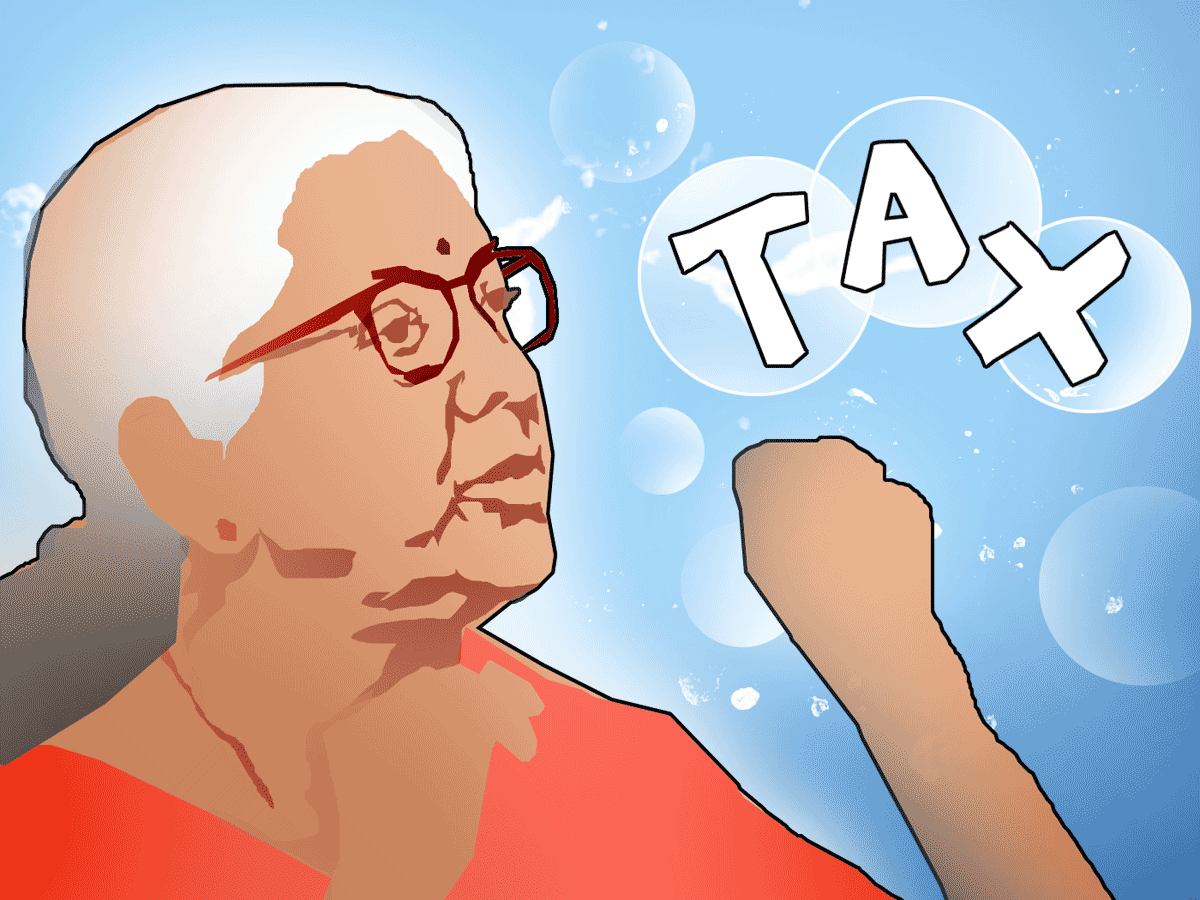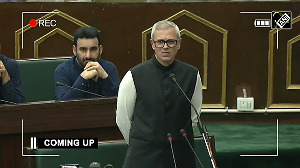The best solution would be the one followed in 2018 -- allow cost indexation until March 31, 2024 -- but exit at any time.
The second-best alternative would be to allow time until March 31, 2025 for investors to exit their investments under the old indexation regime, points out Harsh Roongta.

Two friends, Ram and Shyam, were travelling on a train when robbers started looting its passengers.
Shyam owed some money to Ram. Before the robbers could reach them, Shyam took the money from his pocket and repaid his loan to Ram.
Ram could not refuse the money, even though he knew he would shortly lose it to the robbers.
The debate about removing indexation benefits reminded me of this amusing story. There are three main ways in which capital gains taxation is levied worldwide.
Each method seeks to acknowledge that the 'real' capital gains are lower than the 'paper' capital gains. Paper capital gains are calculated as the sales consideration minus the purchase price.
The first and most popular method is having a concessional rate for taxing such paper capital gains.
The second method is to tax only a portion of the paper capital gains at normal tax rates (for instance, only 50 per cent of the paper capital gains are taxed at normal rates).
The third method, which we followed, is to adjust the purchase cost for inflation, then tax the inflation-adjusted capital gains at a concessional rate.
PricewaterhouseCoopers (PwC) maintains an excellent compilation of global capital gains tax rates.
The compilation shows that India is an outlier in following this indexation plus concessional tax rate system.
In fact, India followed the second method (taxing 50 per cent of the capital gains at normal rates) until 1992.
The crisis-era Budget circa 1992 introduced the current indexation method. There were winners and losers at the time of that transition.
The high-return investors (purchase price in 1981 Rs 60 thousand and sale price Rs 5 lakh in 1992, return 21 per cent per annum) lost out due to the change, compared to the low-return investors (purchase price Rs 4 lakh in 1989 and sale price Rs 5 lakh in 1992 -- return 9 per cent per annum).
Now, things have come full circle. Yesterday's winners (the low-return investors) are today's losers, and vice versa. Any such change will have winners and losers.
That can't be the only reason to fault the government for shifting to a rate of 12.5 per cent, which is on the low side globally, as shown in the compilation.
However, this government has promised that there will be no retrospective amendments and there will be tax stability.
It has now proposed an abrupt change without allowing people a chance to exit their investments based on the method followed for the last 32 years.
Technically, this is not a retrospective amendment, just as Shyam was technically right in repaying his loan to Ram during the train robbery.
In fact, when the government reintroduced taxation on listed equity in 2018, it took care to exempt capital gains accrued until the date of the 2018 budget.
That took the sting out of the discussions since it sought to tax only future gains on the previously exempt equity.
The government's reputation for maintaining tax stability will be similarly enhanced if it includes a suitable sunset clause.
The best solution would be the one followed in 2018 -- allow cost indexation until March 31, 2024 -- but exit at any time.
The second-best alternative would be to allow time until March 31, 2025 for investors to exit their investments under the old indexation regime.
This time would automatically have been allowed in a normal February 1 Budget. Investors should not be penalised because this happens to be a post-election July Budget.
The gain in reputation for tax stability will more than compensate for any revenue loss to the government.
Truth be told, it is never easy for the government to introduce tax changes that have more losers than winners.
However, a sensitive manner of implementation can go a long way in smoothening the path for such changes.
Hopefully, the government will not stick to just being technically correct and will give due consideration to the pleas to ease in these changes.
Harsh Roongta heads Fee-Only Investment Advisors LLP, a Sebi-registered investment advisor.
Feature Presentation: Ashish Narsale/Rediff.com













 © 2025
© 2025